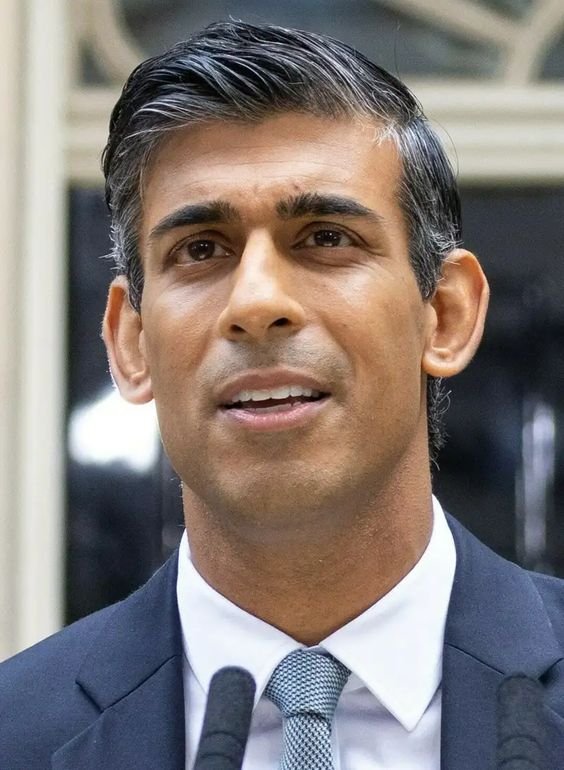
In the wake of the Conservative Party’s historic defeat in the recent general election, a significant shake-up has taken place, led by opposition leader Rishi Sunak. This article delves into the key changes and appointments in the interim shadow cabinet, the implications of these shifts, and the challenges that lie ahead for the Conservative Party as it navigates this transitional phase.
The Election Defeat: Setting the Stage for Change
The Conservative Party’s unexpected and crushing defeat has triggered a major restructuring of its leadership. Many senior ministers lost their seats, prompting an urgent need for new appointments and strategic realignment. This reshuffle marks a critical juncture in British politics, reflecting the party’s efforts to regroup and redefine its future path.
Key Changes and Appointments
Shadow Foreign Secretary: Andrew Mitchell
Former Foreign Secretary David Cameron’s resignation paved the way for Andrew Mitchell to assume the role of shadow Foreign Secretary. Cameron, who made a surprising return to the cabinet in November, stepped down following the election debacle, allowing Mitchell to bring fresh perspectives to the position.
Shadow Chancellor: Jeremy Hunt
Jeremy Hunt retains his position as shadow Chancellor, providing continuity in the party’s economic strategy. Hunt’s experience and expertise are seen as vital for stabilizing the party’s financial policies and addressing the economic challenges ahead.
Shadow Home Secretary: James Cleverly
James Cleverly continues as shadow Home Secretary, maintaining his role in overseeing domestic security and law enforcement issues. Cleverly’s steadfast leadership is expected to be crucial in navigating the complex landscape of national security and public safety.
Shadow Defence Secretary: James Cartlidge
James Cartlidge takes over as shadow Defence Secretary, following the electoral defeats of Grant Shapps and Alex Chalk. Cartlidge’s appointment signals a shift towards a more strategic defense policy, aimed at addressing contemporary security threats and military challenges.
Shadow Justice Secretary: Ed Argar
Ed Argar assumes the role of shadow Justice Secretary, stepping in after the losses of Shapps and Chalk. Argar’s focus will be on judicial reforms and ensuring the justice system is fair and efficient, particularly in light of recent criticisms and public concerns.
Interim Chairman: Richard Fuller
Richard Holden, who narrowly retained his seat, resigned as Conservative Party Chairman, citing the challenging election results. He has been replaced by Richard Fuller, the former Economic Secretary to the Treasury, as the interim Chairman. Fuller emphasizes the need for introspection and a thorough review of the party’s performance to identify areas for improvement.
Shadow Secretary of State for Levelling Up, Housing, and Communities: Kemi Badenoch
Former Business Secretary Kemi Badenoch transitions to shadow Secretary of State for Levelling Up, Housing, and Communities, succeeding Michael Gove. Badenoch’s role will be pivotal in addressing housing issues and promoting community development, which were key issues during the election.
Shadow Secretary of State for Science, Innovation, and Technology: Andrew Griffith
Andrew Griffith takes on the role of shadow Secretary of State for Science, Innovation, and Technology. His appointment underscores the importance of advancing technological innovation and fostering scientific research, crucial for the UK’s competitiveness on the global stage.
Shadow Education Secretary: Damian Hinds
Damian Hinds assumes the role of shadow Education Secretary, bringing his experience and insights to address the pressing issues in the education sector. Hinds will focus on improving educational standards, addressing teacher shortages, and ensuring equal opportunities for all students.
Path Forward Amidst Challenges
With a reduced number of members, the Conservative Party faces a challenging road ahead as it undergoes internal reorganization and addresses broader political changes. The focus remains on stabilizing and reviving the party’s future strategy, even as discussions continue about who will succeed Sunak as party head.
Stabilizing the Party
The newly established shadow cabinet, under Sunak’s direction, aims to provide strong opposition while revising the party’s strategy and position in the wake of a crushing electoral loss. This involves addressing the immediate concerns of party members and supporters, and laying the groundwork for future success.
Reviving the Party’s Strategy
Revamping the party’s strategy will be a multifaceted effort, involving policy reviews, re-engagement with the electorate, and addressing the issues that led to the electoral defeat. The shadow cabinet will play a crucial role in formulating and implementing this new strategy.
Key Areas of Focus for the Shadow Cabinet
Economic Policy
With Jeremy Hunt continuing as shadow Chancellor, economic policy remains a top priority. The focus will be on addressing economic challenges, promoting growth, and ensuring fiscal responsibility. This includes reviewing tax policies, public spending, and measures to support businesses and employment.
National Security
James Cleverly, as shadow Home Secretary, and James Cartlidge, as shadow Defence Secretary, will focus on enhancing national security. This involves addressing domestic security threats, improving law enforcement capabilities, and ensuring the UK’s defense strategy is robust and adaptive to emerging threats.
Justice and Legal Reforms
Ed Argar’s role as shadow Justice Secretary will involve pushing for reforms in the justice system. Key areas of focus will include reducing court backlogs, improving access to legal services, and ensuring that justice is delivered efficiently and fairly.
Housing and Community Development
Kemi Badenoch, as shadow Secretary of State for Levelling Up, Housing, and Communities, will address the critical issues of housing affordability, availability, and community development. This includes promoting policies that support sustainable housing development and community infrastructure.
Innovation and Technology
Andrew Griffith’s appointment as shadow Secretary of State for Science, Innovation, and Technology highlights the importance of fostering innovation. The focus will be on supporting scientific research, technological advancements, and ensuring the UK remains competitive in the global tech landscape.
Education
Damian Hinds, as shadow Education Secretary, will prioritize improving educational standards and addressing the challenges faced by the education sector. This includes ensuring access to quality education for all students, supporting teachers, and addressing the funding needs of schools.
Reflecting on the Election Outcomes
The election outcomes have prompted a period of introspection and analysis within the Conservative Party. Interim Chairman Richard Fuller emphasized the need for the party to conduct a thorough review of their performance, identify areas for improvement, and develop strategies to regain public trust and support.
Richard Fuller’s Statement:
“The challenging election results have highlighted the need for the Conservative Party to regroup and conduct a thorough review of our performance. It is essential that we take this time to reflect, understand where we went wrong, and outline clear areas for improvement. Our focus will be on rebuilding our strategy, re-engaging with the electorate, and ensuring that we are better prepared for future challenges.”
Looking Ahead: Leadership and Vision
As the Conservative Party navigates this transitional phase, the focus remains on providing strong opposition and preparing for future leadership changes. The newly established shadow cabinet, under Sunak’s guidance, aims to address the immediate challenges while laying the foundation for long-term success.
Leadership Transition
Discussions about who will succeed Sunak as party head continue, with several potential candidates being considered. The leadership transition will be crucial in shaping the party’s future direction and strategy.
Vision for the Future
The Conservative Party’s vision for the future involves addressing the key issues that led to the electoral defeat, developing comprehensive policies that resonate with the electorate, and ensuring strong and effective leadership. This vision will guide the party’s efforts to rebuild and regain its position in British politics.
The Conservative Party’s shadow cabinet reshuffle, following a historic electoral defeat, marks a significant moment in British politics. The new appointments and strategic shifts aim to address the immediate challenges and lay the groundwork for future success. Under Rishi Sunak’s direction, the party seeks to provide strong opposition, revise its strategy, and position itself for a resurgence.
The path ahead is challenging, but with a renewed focus on economic policy, national security, justice reforms, housing, innovation, and education, the Conservative Party aims to rebuild its foundation and regain public trust. The coming months and years will be critical in determining how these changes in leadership and strategy will impact the party’s course and its ability to navigate the complex political landscape.
ALSO READ: Scandal at HMP Wandsworth: Here is What You Need to Know







